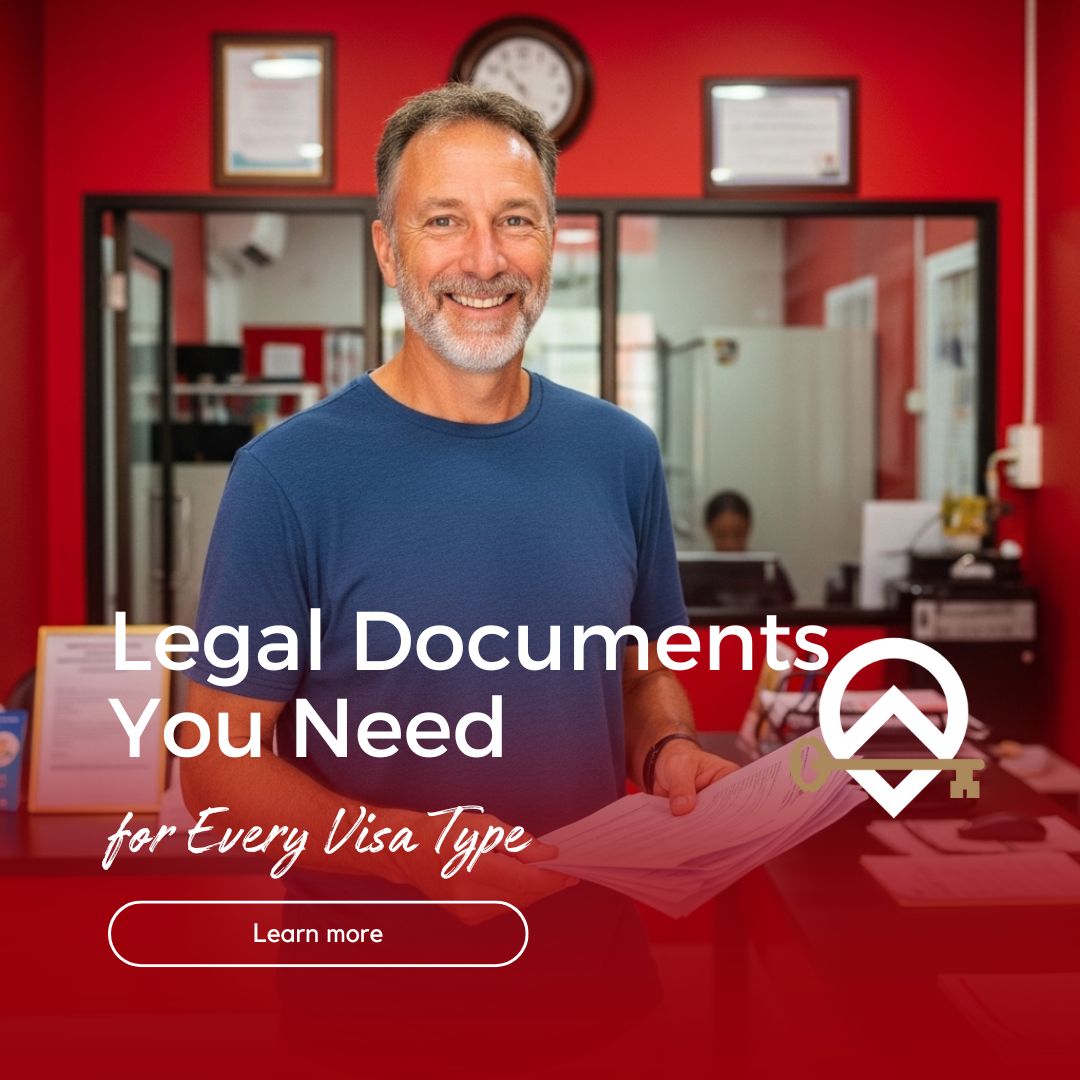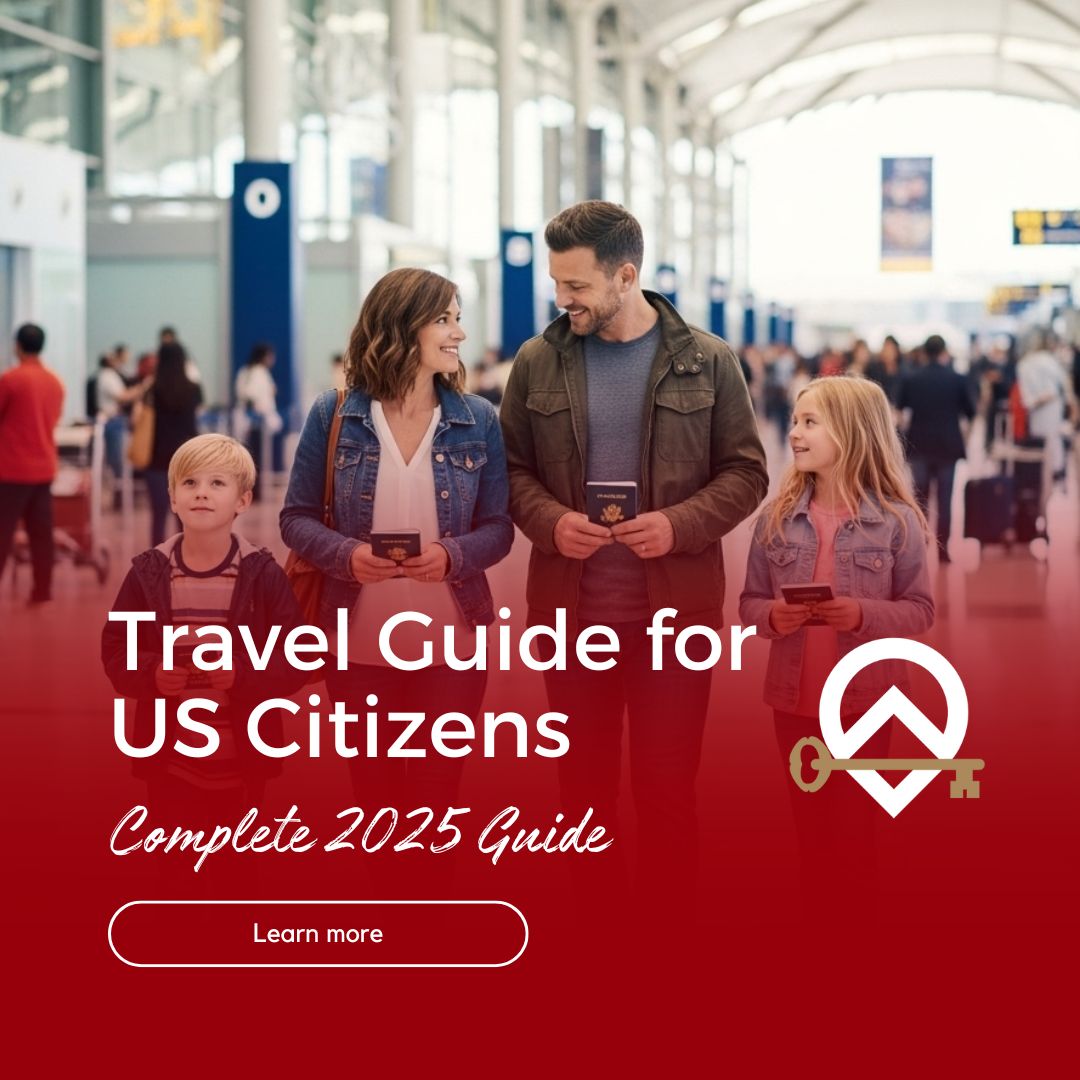Planning a trip to Thailand? Whether you're dreaming of exploring Bangkok's bustling streets, relaxing on pristine beaches, or conducting business in the Land of Smiles, getting your visa documentation right is crucial for a smooth entry. Thailand offers various visa types to suit different purposes and durations of stay, but each comes with specific document requirements that can seem overwhelming at first glance.
Don't worry – we've got you covered. This comprehensive guide breaks down exactly what documents you need for each type of Thailand visa, helping you avoid common pitfalls and ensure your application goes through without a hitch.
Table of Contents
- Tourist Visa Documents
- Business Visa Requirements
- Education Visa Documentation
- Retirement Visa Papers
- Transit Visa Essentials
- Universal Document Requirements
Tourist Visa Documents
The Tourist Visa (TR) is perfect for vacation trips, visiting friends and family, or short-term leisure travel. Most travelers find this the most straightforward option, but you'll still need to gather several important documents.
Essential documents for Tourist Visa:
Your passport must be valid for at least 6 months from your intended date of entry and have at least two blank pages for stamps. This is non-negotiable – Thai immigration is strict about passport validity.
You'll need to complete the visa application form (available online or at Thai consulates), which asks for personal details, travel plans, and accommodation information. Be accurate here – any discrepancies can cause delays.
Recent passport-sized photographs are required (usually 2 copies, taken within the last 6 months). Some consulates are picky about photo specifications, so check their requirements beforehand.
Flight confirmation showing your onward travel is crucial. This doesn't need to be a fully paid ticket – a reservation is often sufficient, but it must show you're leaving Thailand within the visa validity period.
Hotel reservations or accommodation proof for your entire stay demonstrates you have a place to stay. If you're staying with friends or family, you'll need an invitation letter and their ID copy.
Financial proof is increasingly important. Bank statements from the last 3 months showing sufficient funds (typically equivalent to $700-1000 USD) prove you can support yourself during your stay.
Business Visa Requirements
The Business Visa (B) allows you to conduct business activities, attend meetings, or explore investment opportunities. The document requirements are more extensive than tourist visas, reflecting the serious nature of business travel.
Core business visa documentation:
All the basic requirements from tourist visas apply, but you'll need additional business-specific documents. An invitation letter from your Thai business partner or company is essential. This letter should detail the purpose of your visit, duration, and who's responsible for your expenses.
Your company's business registration documents (notarized and legalized) prove your legitimate business status. If you're employed, you'll need an employment letter stating your position, salary, and the business purpose of your trip.
In some cases, you might need to provide your company's financial statements or tax documents, especially if you're a business owner or director. The Thai company you're visiting may also need to provide their business registration documents.
Professional credentials or certificates relevant to your business activities can strengthen your application. If you're attending specific meetings or conferences, include those invitations or registration confirmations.
A detailed itinerary showing your business activities, meetings, and contact information for all parties involved helps immigration officers understand your visit's purpose.
Education Visa Documentation
The Education Visa (ED) is for students, researchers, or anyone pursuing educational activities in Thailand. Whether you're enrolling in a university, learning Thai language, or participating in training programs, the document requirements are quite specific.
Key education visa documents:
An official acceptance letter from your Thai educational institution is the cornerstone of your application. This letter must include course details, duration, and confirmation of enrollment or acceptance.
Your educational background documentation is crucial. This includes transcripts, diplomas, or certificates from your previous education, often requiring notarization and legalization. If documents aren't in English or Thai, you'll need certified translations.
A letter from your home country's educational institution (if applicable) explaining your study abroad program or academic exchange can support your application.
Financial proof is particularly important for education visas. You'll need bank statements showing sufficient funds to cover tuition and living expenses throughout your studies. Some consulates specify minimum amounts, often around $2,000-3,000 USD.
If you're under 18, parental consent documents and guardian information are required. Adult students might need character references or police clearance certificates, depending on the consulate's requirements.
Health insurance covering your entire stay is increasingly required, especially for longer-term education visas. Make sure your policy covers medical treatment in Thailand.
Retirement Visa Papers
The Retirement Visa (O-A) is designed for individuals 50 years and older who want to spend their golden years in Thailand. While attractive for long-term stays, it comes with stringent financial and health requirements.
Retirement visa documentation essentials:
Age verification through your passport showing you're 50 or older is the first requirement. Your passport must have at least 18 months validity remaining.
Financial requirements are substantial and well-documented. You'll need bank statements showing either 800,000 Thai Baht (approximately $24,000 USD) in a Thai bank account, or proof of monthly income of at least 65,000 Thai Baht (about $2,000 USD), or a combination of both.
A police clearance certificate from your home country, issued within the last 3 months, is mandatory. This document must be notarized and legalized by Thai authorities or apostilled if your country participates in the Hague Convention.
Medical certificate from a licensed physician in your home country confirming you're in good health and free from specific diseases is required. Some consulates provide specific medical forms that must be completed.
Health insurance with minimum coverage of $50,000 USD for inpatient care and $10,000 USD for outpatient care is mandatory. The insurance must be valid for the entire visa period and cover treatment in Thailand.
Proof of residence in your home country (utility bills, rental agreements, or property ownership documents) may be required by some consulates.
Transit Visa Essentials
Transit visas are for travelers passing through Thailand to reach their final destination. While many nationalities can transit without a visa for short layovers, certain situations require proper transit visa documentation.
Transit visa requirements:
Your onward ticket to a third country (not your origin) is essential. This must be a confirmed booking, not just a reservation, and should be for travel within 24-72 hours of your arrival in Thailand.
A valid visa for your final destination country (if required) must be presented. Immigration officers need to see that you can legally enter your next country.
Proof that you won't leave the airport transit area during your layover is sometimes required. This might include a letter from your airline or confirmation that you're on a connecting flight with the same airline.
The standard passport validity and photo requirements apply, though financial proof is usually not necessary for genuine transit passengers.
If your layover exceeds the visa-free transit period or you need to leave the airport, you'll need to meet the full visa requirements for your nationality.
Universal Document Requirements
Regardless of which visa type you're applying for, certain documents and procedures are standard across all Thailand visa applications. Getting these basics right will save you time and potential headaches.
Documents required for all visa types:
Your passport is your most important document. It must be in good condition, valid for at least 6 months beyond your intended stay, and have at least two blank pages for entry and exit stamps. Damaged passports are often rejected, so check for any wear and tear.
The visa application form must be completed accurately and honestly. Any false information can result in visa denial and potential future complications. Use black or blue ink if filling out paper forms, and ensure your handwriting is legible.
Passport photographs should meet specific requirements: recent (within 6 months), showing your full face against a white background, and measuring 4x6 cm or 2x2 inches depending on the consulate. Avoid glasses, hats, or heavy makeup that might obscure your features.
Visa fees vary by nationality and visa type but must be paid in the correct currency and method specified by each consulate. Some accept only cash, others take money orders or bank drafts. Credit cards are rarely accepted.
Processing times typically range from 1-5 working days for single-entry visas, but can be longer during peak seasons or for complex applications. Apply well in advance of your travel date to avoid disappointment.
Many consulates now require appointments for visa submissions, so check their website and book ahead. Walk-ins are often not accepted, and this could delay your travel plans significantly.
Remember that visa requirements can change, and each Thai consulate might have slightly different procedures or additional requirements. Always check with the specific consulate where you'll be applying for the most current information before gathering your documents.
Getting your Thailand visa documentation right the first time saves money, time, and stress. Take the time to prepare thoroughly, double-check all requirements, and don't hesitate to contact the consulate if you have questions about specific documents. Your adventure in Thailand will be much more enjoyable when you start with proper documentation!





